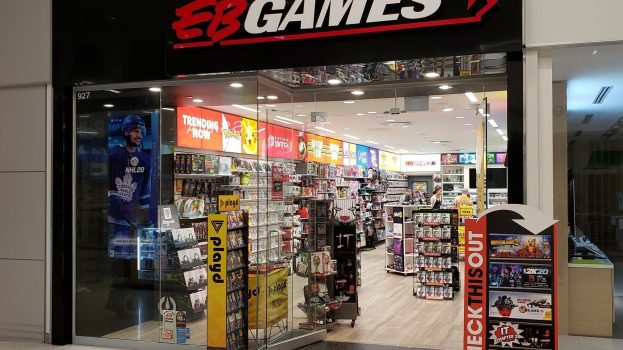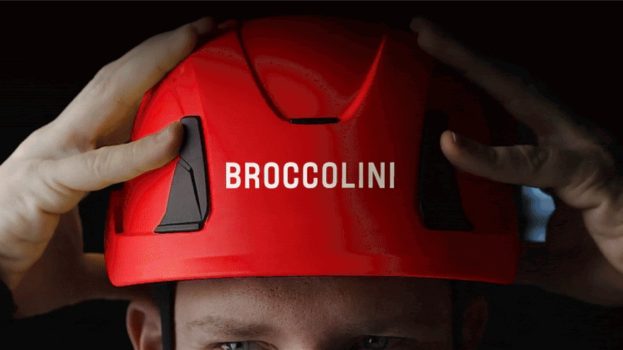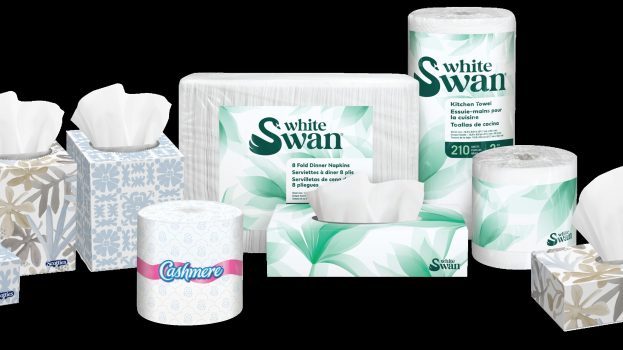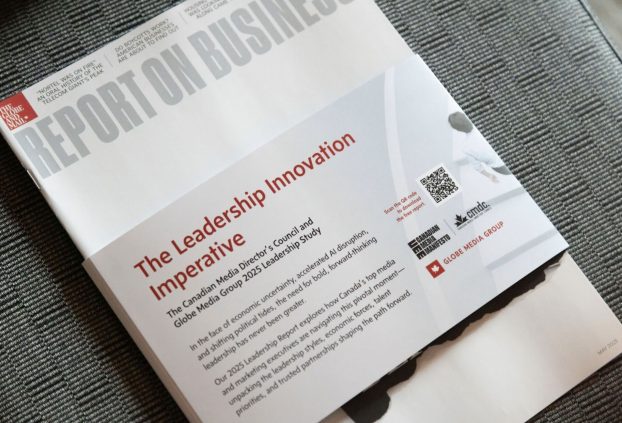It turns out that what women don’t want, after all, is a serious TV channel that talks about issues 24/7. As Toronto-based Corus Entertainment recently discovered through extensive research, women actually go to the small screen for the same reason men do – to be entertained. This epiphany has culminated into a bolder look for WTN, now called simply W, as well as a clever ad campaign encompassing TV, radio and print that will introduce the revamped network beginning April 15.
‘We listened to a lot of women about what they like and don’t like,’ says Dolores Keating-Mallen, creative director at Corus. ‘We listened to how much they want to have fun, watch great movies and be really entertained. That was the strongest message we got from everybody of all ages.’
After Corus purchased WTN, which it acquired for $205 million from Calgary-based Shaw Communications last March, it quickly set about finding out what women really thought about the station. ‘We knew going in that WTN wasn’t a destination or go-to channel,’ admits Susan Schaefer, VP marketing at Corus. ‘We also knew that despite attracting a 25- to 54-year-old demographic, it was skewing the top end of that.’ For the period Sept. 3, 2001 to Feb. 17, 2002, the average weekly viewership at WTN was 52,000, with women spending only 54 minutes per week with the network.
Corus, proud mother of the kids’ network YTV, has two overall objectives: to become the number-one specialty service for females, and to reduce the average age of its viewers, pointing itself squarely at the 35-year-old as a creative bull’s eye. Last October, the company conducted two studies to find out how to get the network where it wanted to be: the first included 500 phone interviews, and the second a series of seven focus groups. Both spoke to 18- to 49-year-old women from across the country. A third study in January incorporated a litmus test to evaluate whether or not the new brand resonated with the target.
The initial research indicated WTN had built itself significant brand awareness, and that women had respect for its commitment to issue-based programming. But at the same time, ‘they weren’t watching it a whole lot,’ says Schaefer. ‘Sometimes they found it too earnest, too informative and quite soft. Several women on the younger end of the spectrum said it wasn’t for them. … They want escape, relaxation and entertainment at the end of the day.’
In fact, of the women surveyed by telephone, 50% said they were ‘very interested’ in movies, 47% in music and 45% in entertainment as specific program genres.
In focus groups, women were also asked to develop an ideal TV channel, by picking six magazines representing the type of content they would like to see. The publications chosen were Cosmopolitan, InStyle, Canadian House & Home, Shape, Oprah’s O magazine, and People. ‘What that proved to us is that there is a role for a service that represents women’s diverse interests,’ says Schaefer, who adds that W’s competitors are mainly in the specialty category and include stations like HGTV, TLC and Prime. ‘They’re interested in fashion, home, fitness, spirituality and sexy programming. We believe our new W can serve that.’
Once the research was complete, Corus crafted a new brand image, with the help of Los Angeles-based branding firm Spark, and its founder Elaine Cantwell. ‘What most impressed us about Spark was its rebranding of [U.S. mass merchandiser] Target a couple of years ago,’ explains Schaefer. ‘Target had an older demo, and they wanted to revamp it, and make it appeal to a younger demo. We thought that repositioning exercise was similar to what we were facing.’
Spark began the transformation of W with a simple wordmark as a logo – a W within a circle. Schaefer explains that there was a discussion about adopting an entirely new name, but Corus decided to build on the equity established by WTN instead.
On April 15, when the network makes the official switch, a transition ID will show the evolution of WTN into W by having the old logo collapse into the new one. This will be followed by fifteen different image IDs featuring the modern graphic in ‘fun and bold’ ways. For example, one five-second ID will depict the W within raindrops, when suddenly an orange umbrella pops open and then lands on the logo. Another example has the W in a disco ball. The images are bright and utilize the energetic new colors of the network – aqua, orange, black and white.
‘A lot of people do the same things for women – you see a lot of pastels and soft, rippling graphics,’ points out Keating-Mallen. ‘We thought, ‘why take away all the fun colors and visuals, and just go the stereotypical route?”
An eight-week ad campaign, produced by the creative team Elspeth Lynn and Lorraine Tao from Toronto agency Zig, will educate consumers about the new W. Print, which will run in TV guides and newspapers, and radio will be tactical and promote programming, while a 30-second TV spot will be more brand-focused.
One of the print ads endorses the Sunday Night Sex Show with WTN alum Sue Johanson. It consists of a simple black strip and the words, ‘Willies. Warts. Whips.’ A similar promo for Ally McBeal says ‘Wacky. Warped. Wonderful.’ According to Schaefer, the company will also use ‘who, what, when and where’ in advertising to ‘build on owning W and W words.’
Meanwhile Schaefer reports that both the TV and radio creative will be ‘witty,’ in zeroing in on the inherent distinctions between men and women. ‘We know we’re from different planets,’ she says, adding that lively audio will also play a significant role in the creative. ‘We want to embrace the differences and if we can capture that through our advertising, we will do so.’
A Web site will also launch concurrently with the campaign, delivering information about the various shows, as well as related articles and fun polls where women can, for instance, pick their favourite martinis. Corus is also hoping to build a database via the site.
Besides Ally, the Sex Show and a stronger focus on movies, new programs include elove, a documentary series about romance found in cyberspace, Night and Day, a dark romantic comedy, and Distant Shores, a travel show about two Canadians who sail to exotic ports around the world.
Sunni Boot, president of Optimedia Canada in Toronto, believes Corus is headed in the right direction, but doesn’t think it should swear off issue-based programming entirely. ‘I certainly believe there is a place for a WTN to remain somewhat in the issues business,’ she says. I wouldn’t like to see them abandon that area … [but] they can absolutely contemporize it … [with] a more entertainment style.’
As for the rebranding strategy, Boot thinks it will have an impact. ‘It’s so competitive out there, that if you don’t stand out as a distinct, branded entity, you could lose viewers in the long run,’ she says.























